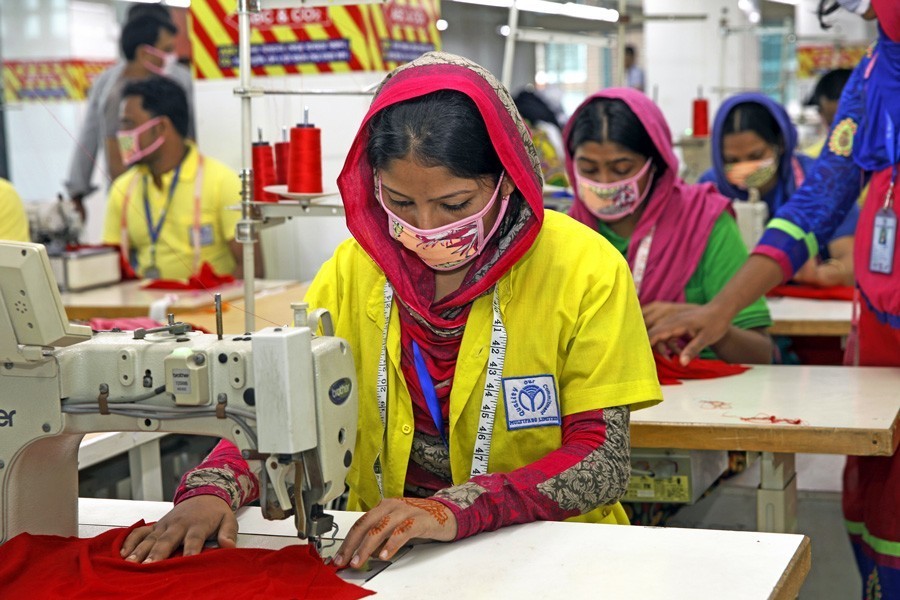Despite losing global market share, Bangladesh to remain a major source of apparels: Study

Published :
Updated :

Bangladesh will remain a major source of apparels in the coming months despite the fact that the country has lost its share in the global market during the Covid period, according to a latest study.
The country lost 2.0 per cent of the global knit market while the rate was 1.0 per cent for woven items, it revealed.
Bangladesh’s market share was 8.0 per cent and 7.0 per cent in the global knit and woven markets in December 2019 which fell to 6.0 per cent for both segments in June 2020.
On the other hand, the market share of China (highest 5.0 and 9.0 per cent in knit and woven items respectively) and Vietnam increased (knit by 1.0 per cent) despite the pandemic, it revealed.
The findings of the joint study titled ‘Recovery of the Apparel Sectors of Bangladesh and Sri Lanka: Is a Value Chain based Solution Possible?’ were disclosed at a virtual programme held Tuesday.
Centre for Policy Dialogue, a private think tank in Bangladesh, Southern Voice and Institute of Policy Studies (IPS) in Sri Lanka, jointly conducted the study.
Medium-term challenges will closely correlate with the extent to which the virus is contained and second wave of Covid-19 in prominent markets such as the USA, UK, and EU significantly reduced demand, said Kithmina Hewage IPS research economist while presenting the five key findings of the report.
“Despite uncertainty, brands are confident that Bangladesh will remain a major source of apparels in the coming months,” he added.
“Highest rise in market share observed in China, followed by Vietnam, Germany, Italy, Turkey, Netherlands, Belgium and France,” CPD research director Khondaker Golam Moazzem said.
Bangladesh and Sri Lanka lost their shares during the COVID period, he added.
Brands and buyers had been over-focusing on a few large supplying countries, which adversely affected poor supplying countries to get their normal market share in the post-Covid period.
Market players of the global apparel value chain should consider a redistributive approach saying that it could be an effective instrument to keep factories in operation as well as to ensure workers well-being for a longer period, he suggested.
If buyers and brands maintained their market share of export orders with the largest supplier -China -during the COVID-19 pandemic period, an additional USD 2 billion worth of orders could be distributed to other traditional supplying countries, he said.
“Both Bangladesh and Sri Lanka have the capacity to supply products that are supplied by China,” Mr Moazzem added.
The suggested distributive approach could be considered by big buyers from key sourcing countries/regions, like the USA, European Union.
Their governments would have to state this as an official position, encouraging their local brands and buyers to follow a distributive approach in case of apparel import.
With such a measure, they could salvage the suppliers and millions of workers of the global apparel value chain, he noted.
Munni_fe@yahoo.com


 For all latest news, follow The Financial Express Google News channel.
For all latest news, follow The Financial Express Google News channel.